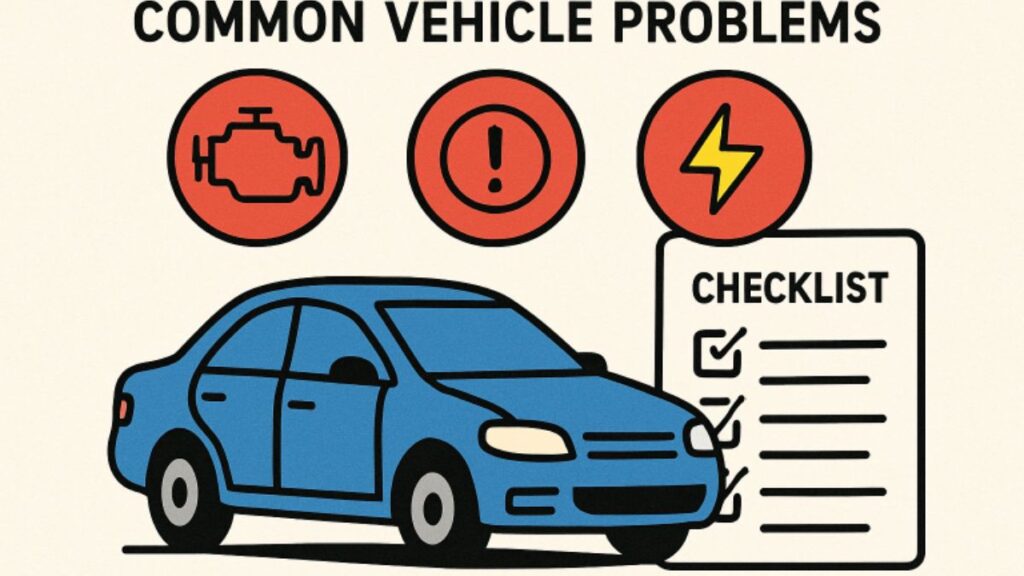Every year, countless car owners encounter persistent issues that impact their driving experience, safety, or vehicle’s resale value. From malfunctioning transmissions to unreliable braking systems, these problems can be both frustrating and hazardous. If efforts to repair the same defect repeatedly prove unsuccessful, it may be time to speak with a qualified New York lemon law lawyer to understand your legal options.
Lemon laws exist to protect consumers from vehicles plagued by serious or recurring defects that jeopardize reliability or safety. These laws outline the manufacturer’s obligations and provide specific remedies for consumers. Knowing your rights and responsibilities is crucial for navigating a successful claim when faced with a persistent vehicle issue.
Unfortunately, many consumers miss out on potential remedies simply because they’re unfamiliar with what qualifies a car as a “lemon” or how the claims process works. Acting quickly, recognizing defect patterns, and assembling the right documentation are critical steps that give your claim the best chance of success.
Lemon law protections have undergone significant updates in recent years, expanding the scope and strength of consumer rights. Staying up-to-date can help drivers take advantage of new protections and avoid costly mistakes during the claims process.
Common Vehicle Defects
Car owners can encounter a myriad of defects that not only reduce driving enjoyment but can also introduce real safety concerns. Recurring issues often seen in lemon law claims include:
- Transmission Problems: Signs such as slipping gears, erratic shifting, or failure to accelerate are warning signs of potential transmission failure. Not only are these faults inconvenient, but they also can make operating the vehicle unsafe during routine driving or at highway speeds. The persistence of such problems—despite repeated repair attempts—can signal a possible lemon law issue.
- Brake System Failures: Failing brakes manifest as a soft brake pedal, grinding noises, or delayed response when stopping. Clearly, brake reliability is essential for safety; persistent problems after several repair attempts may qualify your vehicle for lemon law protections. According to industry coverage by The New York Times, brake-related defects remain a top reason for manufacturer recalls each year.
- Electrical System Malfunctions: Faulty wiring, non-functioning sensors, and the failure of safety systems, such as airbags or seatbelts, can lead to a severe risk in an emergency. Modern vehicles rely extensively on their onboard electronics, so persistent electrical malfunctions can quickly escalate from a nuisance to a serious hazard that requires prompt legal attention.
Recognizing these common defects is your first step in identifying whether your vehicle’s issues may fall under the scope of lemon law protections in your state.
The Importance of Documentation
Thorough documentation is essential when building a strong lemon law claim. The burden of proof lies with the vehicle’s owner, making it vital to maintain clear and organized records of all defect symptoms and repair attempts. Essential documents include:
- Repair Invoices: Always obtain and store detailed invoices for every visit to the mechanic or dealership safely. These documents should clearly describe each reported issue and the steps the service center took to address it.
- Service Logs: Keeping a written or digital log of all service appointments, including dates, complaints, technician notes, and outcomes, helps tell a chronological story of the defect’s persistence.
- Communication Records: Save all emails, text messages, and written correspondence with the manufacturer or dealer—as well as notes from phone calls—for later reference.
Without comprehensive records, it becomes increasingly difficult to demonstrate to a court or arbitrator that a defect persists despite reasonable efforts at repair. Proper documentation can mean the difference between a successful resolution and a denied claim.
Timely Action and Legal Deadlines
Taking swift action is vital after discovering a recurring defect. Lemon laws feature strict deadlines, and failing to act promptly may result in the forfeiture of your rights to compensation. For example, in many states, including New York, there is a statute of limitations—typically four years from the date you first noticed the defect or a shorter period dictated by warranty terms. Seeking legal advice early ensures you don’t miss these critical windows.
- Act Immediately: Ensure that you document the issue and initiate repairs as soon as you suspect a qualifying defect. Don’t delay in contacting the manufacturer or a seasoned lemon law attorney.
- Consult a Legal Professional: An experienced lemon law advocate can help you navigate the process, confirm eligibility, and make sure all deadlines are observed for your specific case.
Legal deadlines are non-negotiable, so working with an expert promptly after discovering a defect is crucial for a favorable outcome.
Recent Legal Changes Enhancing Consumer Protections
Lemon law protections are continually evolving to keep pace with the automotive market and consumer needs. One recent example is the significant update to California’s lemon law, which now extends coverage to certified pre-owned vehicles previously excluded. Among the major updates:
- Certified Pre-Owned Cars: Lemon law protections now apply to these vehicles if they include manufacturer-backed warranties, providing more buyers with access to legal remedies.
- New Time Constraints: In many regions, claimants must file within one year after the warranty expires, but never later than six years from the initial delivery date.
- Stricter Penalties for Manufacturers: Some updated statutes impose significant fines, sometimes up to double the vehicle’s value, for willful manufacturer violations of consumer rights.
Legislative updates like these reflect a growing emphasis on consumer protection, placing new requirements and responsibilities on auto manufacturers. Staying informed helps you benefit from these evolving protections if you find a vehicle plagued by defects that can’t be fixed.
Final Thoughts
Navigating the lemon law process can seem complex, but identifying defects early, keeping diligent records, and taking swift and informed action provides car owners with the best path to a fair resolution. New changes in lemon law protections continue to empower consumers, ensuring that manufacturers remain accountable for persistent defects that undermine vehicle safety and value. Armed with knowledge and documentation, you can hold manufacturers to their warranties and regain confidence in your investment.







